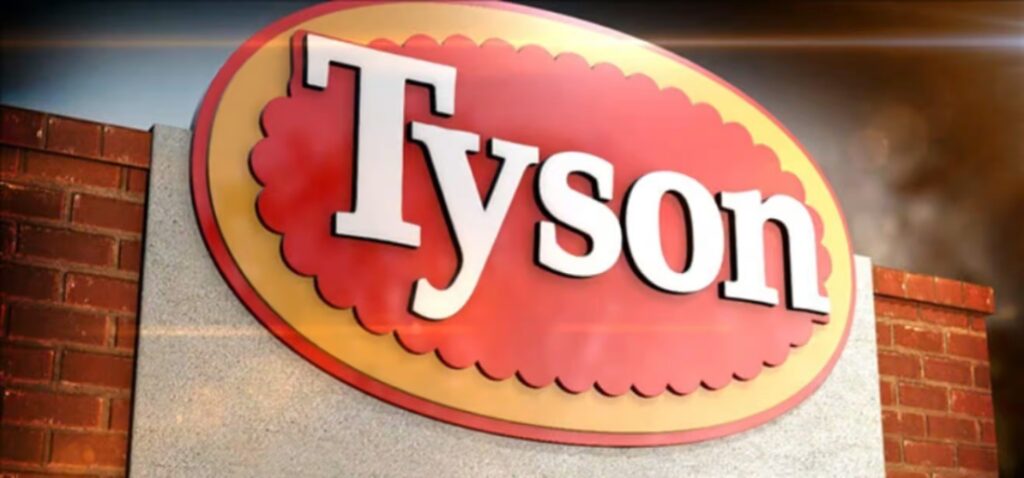Tyson Foods is involved in a multimillion-dollar fraud scam involving imaginary cattle with Easterday Farms dairy farm.
Cody Easterday, 51, fraudulently charged Tyson with approximately 265,000 head of cattle that did not exist and was sentenced to 11 years in prison. Easterday pleaded guilty to wire fraud on March 31, 2021.
The judge ordered him to pay $244 million in restitution and serve three years of probation after he is released from prison and served his time from the “ghost cattle” scam.
According to prosecutors, Easterday and Easterday Ranches Inc. contracted with Tyson Foods and another company and agreed to purchase and feed cattle on their behalf. Once the cattle were slaughtered and sold, Easterday Ranches agreed to repay costs in advance, plus interest and other costs, retaining the difference in profits. Under the contract, the companies advanced Easterday Ranches money to cover the costs of buying and raising the cattle.
Beginning in approximately 2016 and continuing through November 2020, Cody submitted false invoices to Tyson and the unnamed other company to buy and raise hundreds of thousands of cattle that were never actually bought and didn’t exist.
Cody Easterday, of Mesa, Washington, then used about $200 million for debts incurred on behalf of the ranch from commodity futures trading on behalf of Easterday Ranches. The leftover money went to his personal use and to benefit the ranch’s empire.
The cattle scheme was detected in a 2020 internal review by Tyson.
“Cody Easterday spent years engaged in an extensive false billing scheme that resulted in millions of dollars in losses for the victim which led to sizable personal benefits for himself,” said Inspector in Charge Eric Shen of the U.S. Postal Inspection Service (USPIS) Criminal Investigations Group.
Washington state U.S. District Court Judge Stanley Bastian called the case “the biggest theft or fraud I’ve seen in my career.”
Easterday Farms and Ranch
Shortly after Easterday’s massive fraud was uncovered, the prosecutors said that Easterday Ranches and another of his companies, Easterday Farms, Inc., went into bankruptcy. Cole Easterday, Cody’s grandson, was permitted to run the dairy plant, but it was suspended during the bankruptcy battle.
The farm continues to be in a battle to continue operations.
The Oregon Department of Agriculture has refused to issue a permit for feeding operations until nitrate levels in groundwater are brought back into compliance, and a plan for maintaining safe levels is approved. The dairy farm has faced nitrate-level inspection failures over the past two years.
Nitrate in groundwater is linked to thyroid disease, birth defects, and increased cancer risk.
Cody Easterday is liquidating many of Easterday Farms’ assets to pay back those affected by the $200 million-plus ghost cattle scheme.
History of Tyson Foods
Tyson Foods began its business in Springdale, Arkansas, during the Great Depression in 1931 by John W. Tyson, where he began delivering chickens to large markets in the Midwest. Tyson grew his business, started raising chicks, and offered grinding feed to local chicken farmers.
In 1947 Tyson incorporated his business as Tyson Feed and Hatchery, Inc. and provided three essential services: selling baby chicks, feed, and transportation of chickens to market. In 1952 Don Tyson, John’s son joined the company as a General Manager, who worked on the farm six days a week.
Their first processing plant opened in 1958, and in 1963 the company went public.
In 1967 John Tyson and his wife Helen lost their lives in a tragic train-automobile accident. Don took over the company and later changed the name to Tyson Foods in 1972. By 1989 Tyson acquired a processing plant and doubled in size to become the world’s largest fully-integrated producer, processor, and marketer of poultry-based foods.
In 2000 John H. Tyson, grandson of the original John Tyson, led the company as CEO. The company is headquartered in Springdale, Arkansas.
Tyson’s stock has continued to fall since April 2022. Just within the last month, it’s lost almost $10 a share.
